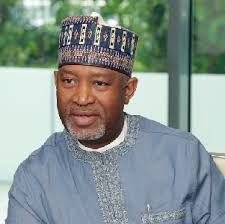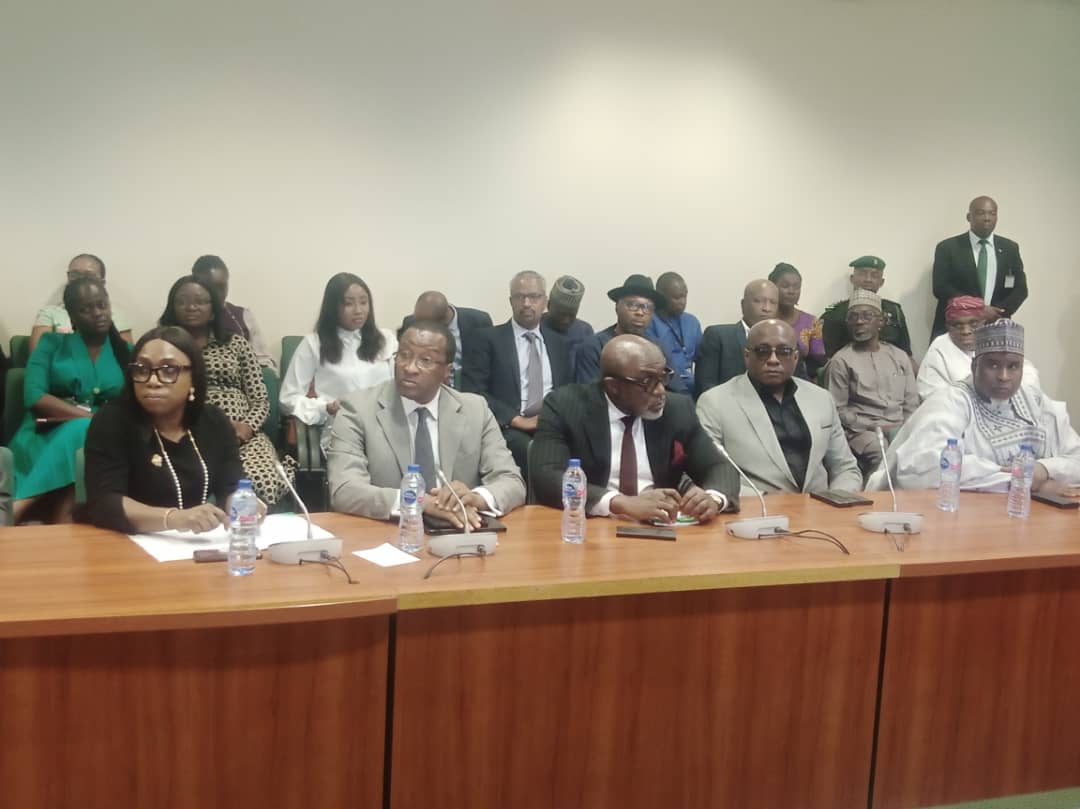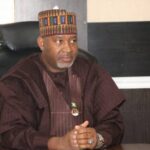As Nigeria is set to welcome a new administration on May 29, 2023, stakeholders in the Aviation sector have identified some steps that should be taken to revamp the aviation industry, increase its contribution to the GDP and cut back capital flight.
So much hope was raised in late 2015 when the newly appointed Minister of State, Aviation, Senator Hadi Sirika, reeled out the plans of the Buhari administration for the aviation sector. The plans he christened, ‘Aviation Road Map’, have not been achieved as many industry stakeholders are miffed that the administration’s achievements are far short of what it promised. They are of the view that the critical programmes in the Aviation Road Map are yet to be actualized, even as the door closes for the Muhammadu Buhari’s administration.
In order to depart from the days of huge promises and little delivery, industry experts have offered ways that the in-coming administration would revamp the industry. They identified key factors that tend to drag the sector backwards, which include huge foreign exchange due to overseas aircraft maintenance, capital flight by airlines because international travel from Nigeria is wholly dominated by foreign airlines, multiple taxes, which leave indigenous airlines and other companies operating in the industry literally stripped of their earning and the outrageous remittances from aviation agencies by the federal government that tend to asphyxiate their economic growth.
Controversial Projects
Senior member of Airline Operators of Nigeria (AON) and the President/CEO of Top Brass Aviation Limited, Captain Roland Iyayi said that what the in-coming administration would do immediately it takes over is to review the controversial projects embarked on by the Buhari’s administration, which left the industry in a sorry state. They include the so-called aerotropolis, which prompted the government to demolish airport facilities at the Murtala Muhammed International Airport (MMIA), Lagos, including the headquarters of aviation agencies without alternative offices in Abuja, where the workers of these agencies were forced to relocate. Iyayi rightly observed that such demolition would have forced in-coming government to tailor its programmes in the industry to dovetail with the Buhari’s because there would be no alternative than to do the bidding of its predecessor if the airport facilities were destroyed. But after the demolition of the former headquarters of Accident Investigation Bureau (AIB), now Nigerian Safety Investigation Bureau (NISB), aviation unions went to court and received court order to stop further demolition of offices at the Lagos airport.
The projects that should be reviewed include the national carrier programme, the aerospace university, which many in the industry argue was duplication of efforts because Nigeria has the Nigerian College of Aviation Technology (NCAT), Zaria, internationally rated aviation institution, which still needs uplift and modern teaching facilities. Others that should be reviewed include the establishment of Maintenance, Repair and Overhaul (MRO) facility, which might have taken off on paper but never physically took off; although the paper take off might have gulped some money, airport facilities concession and the establishment of leasing company, which many in the industry were not apprised of the update of the programme.
Taxes and Capital Flight
Iyayi said: “We have to review the policies that have stagnated the growth of the aviation industry and these include the taxes, the charges and the remitting of 40 per cent of the earnings of some aviation agencies to the coffers of the federal government. This has mitigated against growth because while the federal government wanted to boost its revenue it has discouraged investment in the industry and some of these agencies that pay these remittances are not revenue generating agencies. So, these are the key things that should be reviewed in the next three months. Currently, the industry contributes 0.5 per cent to the nation’s GDP, but it is possible to raise this to 2.5 per cent in the next three years if the right actions are taken to revamp the sector.”
He also said that in the long term, government should embark on the policies that will encourage foreign direct investment (FDI), the establishment of MRO through partnership, but not necessarily with the West, but with companies in other parts of the world that can enhance growth of indigenous expertise, pointing out that Garuda of Indonesia could partner with Nigeria on MRO. KLM carry out some of its heavy aircraft checks at Garuda.
“If the right things are done, we can reduce capital flight and grow expertise and we can gain about N5 billion from capital flight in five years,” he said.
Comprehensive Review
Speaking in the same vein, travel expert and organizer of Akwaaba African Travel Market, Ambassador Ikechi Uko, told THISDAY that the Buhari’s administration tried to do a whole lot of things to grow the aviation industry, and advised the incoming government to comprehensively review the projects, pick the ones that are good and the ones that are working and build on them, noting that the Aviation Road Map was good but the review would sieve what was done that was good and what was not good.
“The review will show what are working and what are not working. The new government can reinforce those ones that are working and continue from there,” he said.
Transparency and Accountability
The Managing Director of Flight and Logistics Solutions Limited, Amos Akpan, said it was good to consult with stakeholders if a minister wants to introduce critical policies that will impact the industry, noting that the feedback he would get would go a long way in guiding his actions. He also said that the in-coming Minister of Aviation should encourage transparency and accountability, remarking that such openness would gather support for his policies. Akpan also said that the in-coming government should pay attention to building one hub airport to cater for all transits of passengers and cargo in West Africa.
“If the Minister wants to establish his aviation roadmap, he should first consult stakeholders. I mean current enterpreneurs that are investors and operators in the industry, retired specialists, current working specialists, researchers and journalists in the industry. Then he would have gathered and synthesized their counsel as his inputs.The Minister should encourage transparency and accountability in the aviation agencies.The government must focus on creating one hub airport to cater for all transits, of passengers and cargo, in West Africa,” he said.
Akpan advised that attention should be paid to data collection, noting that the bane of development is to know where an organsiation is going and the best way to know is through data, which will capture growth, revenues earned, funds expended and so on. For examples when the Federal Airports Authority of Nigeria (FAAN) gave out its revenue generation sources to Maevis Nigeria in concession, the authority did not have the exact figures of the revenues generated. It was unable to know how much cargo was generating; how much was being earned from aviation fuel charges and so on. Maevis was able to capture the data. So, when the aviation unions opposed the continuation of Maevis as FAAN concessionaire, they were unable to know how much Maevis was generating for FAAN. Therefore, having the equipment and resources that can transparently capture data is important because it will guide the growth of that organsiation.
Akpan said: “Attention must be given to data collation because you can’t plan right without accurate data. As a result, they will likely continue to engage on executing non essential, non beneficial projects because inaccurate data leads to wrong plans. Currently, we seem to enjoy quoting data from foreign institutions like IATA (International Air Transport Association) because our own is either secret or very difficult to access, if it exists. One source says aviation industry’s current contribution to Nigeria’s GDP is 0.04 per cent; another source says 0.6 per cent. These are quoted from foreign sources; what is our own data saying?”
Financial Leasing Company
Akpan also advised the in-coming government to get a financial leasing company for aviation companies to fund businesses at rates comparable to “our counterparts from other regions. This will help our airlines and our aviation – allied businesses survive competition in the global scene. But government must simultaneously implement oversight on corporate governance for all operators in the industry because this will ensure financial credibility.”
He also said that the Nigerian College of Aviation Technology should be made to meet the manpower needs of operators in the system by aligning the school’s curriculum with the training needs of operators, adding that NCAT should be made to go into fact finding to establish the existing gap in skilled manpower within the industry, then strife to close the gap.
For effective and transparent delivery in its duties, Akpan said government should sanitize its agencies at the airports because they are too many and too disorganized to encapsulate and implement collectively the vision of government in the sector.
“They should sanitise government agencies operating in our airports. They are too many, too rowdy, without synergy. It encourages corruption and gives very poor image to our country. It is a negative for the brand – Nigeria. The government should declare emergency in her first 100 days in office in this regards. The federal government should dedicate one refinery to produce aviation fuel and provide supplies through pipes and fuel dumps especially for Lagos, Abuja, Kano, and PortHarcout airports. Reduce to barest minimum the use of tanker trucks to supply fuel to aircraft in the above mentioned busy airports. They are many, hazardous and require strict safety processes,” he said.
Airport Concession
But aviation security expert and the Secretary General of Aviation Round Table (ART), Group Captain John Ojukitu (rtd), said to improve Nigeria’s aviation industry, aviation should be taken back to the Ministry of Transportation and ensure that the Nigeria Civil Aviation Authority (NCAA) is made the real Civil Aviation Authority. In other words, it must be autonomous and there would not be any interference from the Ministry of Aviation. Ojikutu also said there should be concession of all the airports with one international airport going into concession with four domestic airports and also FAAN should be commercialised.

“Each airport must go into the concession with the passengers terminals, aprons, the runways and the access /exit roads and if possible, the land areas for aerotropolis development. Government should do away with the idea of national carrier but now put serious thought on at least two flag carriers: one for regional and continental and the other intercontinental. The general aviation and cargo terminals should operate opposite to the passenger terminals to reduce the threats of insecurity their closeness pose to the overall security of the airport especially at the MMIA. Government must direct the Federal Inland Revenue Service (FIRS) to monitor closely the foreign exchange earnings on commercial aviation including the earnings on Bilateral Air Service Agreement (BASA) and those from the private services providers, including the fuel marketers. They should enforce the Nigeria National Petroleum Company Limited (NNPC), fuel marketers and airlines to jointly repair the pipeline that supply fuel to the airports to reduce air fare costs and the danger the large number of tankers pose to the airport in their parking areas and in the line of supply on the aprons that lack hydrants. The perimeter fences are no longer sufficient to secure our airports because of uncontrolled urban development and complicated road network around the airports: responsible aviation security authority should construct security fences for all the airports where the enhancement of the perimeter fences can no longer be sufficient to support the airport security,” Ojikutu said.
He added that outside the regulatory authority and airports security, government should have nothing to do with commercial aviation except with the Nigeria Airspace Management Agency (NAMA) which should only be for traffic beyond or above aerodrome control, remarking that the aerodrome control should be part of the airport concessions. Ojikutu also suggested that approach and area airways in the airspace should be for commercialised NAMA and upper airspace control should be joint-National Airspace Control for the military and civil aviation.







